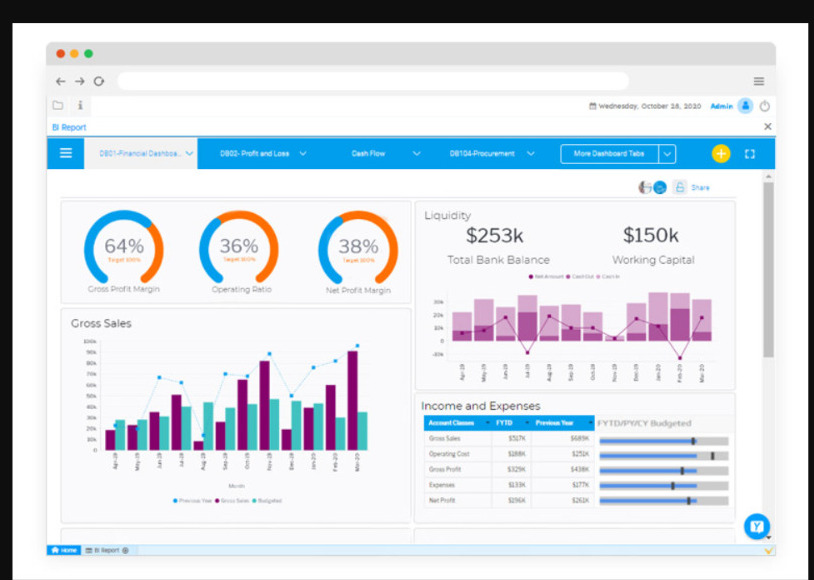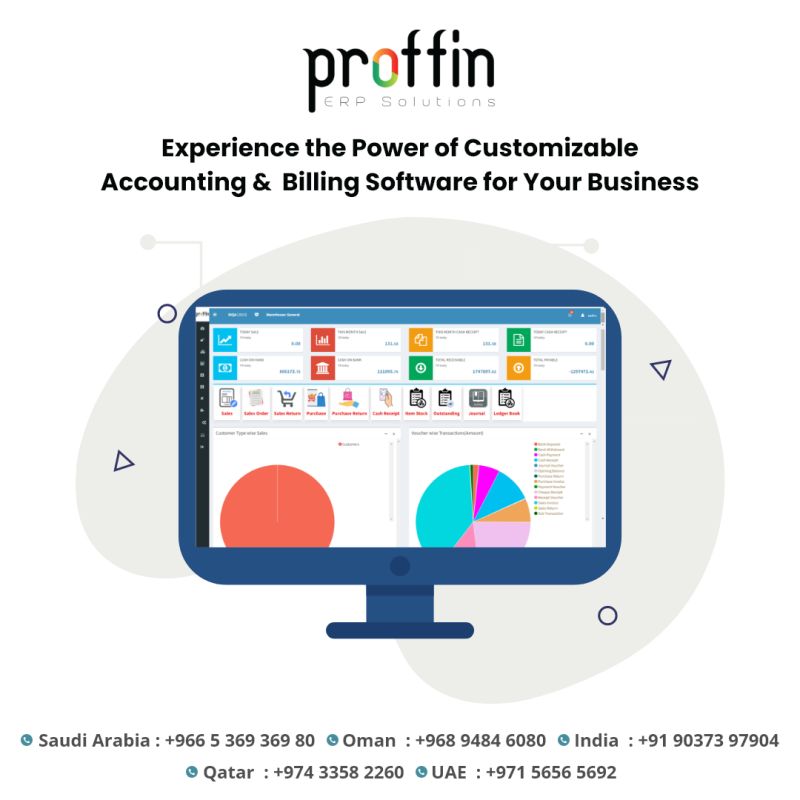
Accounting software in Saudi Arabia refers to digital tools that help businesses automate and streamline their financial processes. This includes managing accounts payable and receivable, creating invoices, tracking expenses and revenue, generating financial reports, and more.
Online accounting software is a popular option for businesses in Saudi Arabia as it allows them to access their financial information from anywhere with an internet connection. This type of software is usually cloud-based and can be accessed through a web browser or mobile app.
In addition to general accounting features, businesses in Saudi Arabia may also require specific software for stock management and billing. Stock management software helps businesses track their inventory levels, manage stock movements, and generate purchase orders when inventory levels get low. Billing software, on the other hand, helps businesses create and send invoices to customers and track payments received.There are many options for accounting software in Saudi Arabia, including both local and international providers. .
Online accounting software in Saudi Arabia is becoming increasingly popular as more businesses move towards digital tools to manage their financial operations. With online accounting software, businesses can access their financial information from anywhere with an internet connection, which is particularly useful for companies with multiple branches or remote workers. In addition, cloud-based accounting software offers the advantage of automatic data backup and protection from data loss due to hardware failure or other disasters.
Stock management software in Saudi Arabia is another important tool for businesses that need to track inventory levels and manage stock movements. This type of software helps businesses keep track of their stock in real-time and provides alerts when stock levels get low, enabling businesses to order new stock before running out. Some stock management software also offers advanced features like barcode scanning and integration with accounting software to streamline the inventory management process.
Billing software in Saudi Arabia is also essential for businesses that need to create and send invoices to customers and track payments received. Billing software can help businesses automate the billing process and reduce the amount of time spent on manual tasks like creating invoices and tracking payments. Some billing software also offers features like automatic payment reminders and integration with payment gateways for easier payment processing.
When selecting accounting software in Saudi Arabia, businesses should consider their specific needs and budget, as well as the features and support offered by the software provider. Some key factors to consider when evaluating accounting software include ease of use, security, scalability, and integration with other tools and systems. It's also a good idea to read reviews and compare different options before making a decision.
-
Improved accuracy and efficiency: Accounting software automates many of the manual tasks associated with financial management, such as data entry and calculations. This reduces the risk of errors and saves time for business owners and accounting professionals.
-
Better financial visibility: With real-time access to financial data, businesses can make more informed decisions about their operations, such as when to order more stock, which products are selling well, and where to allocate resources.
-
Streamlined reporting: Accounting software can generate a variety of financial reports, such as income statements, balance sheets, and cash flow statements, with just a few clicks. This makes it easier for businesses to monitor their financial health and comply with regulatory requirements.
-
Improved customer relationships: Billing software can help businesses create professional-looking invoices and send them to customers in a timely manner. This can improve customer satisfaction and reduce the risk of payment delays or disputes.
-
Better collaboration: Online accounting software enables multiple users to access financial data from different locations, which can improve collaboration and communication within teams.
Saudi Arabia, there are several local and international providers of accounting software, each with their own strengths and weaknesses. It's also important to consider factors like data security, compliance with local regulations, and scalability as the business grows.
-
Compliance with local regulations: Different countries have different regulations regarding accounting and financial reporting. When choosing accounting software in Saudi Arabia, it's important to ensure that the software complies with local laws and regulations, such as the Zakat and Income Tax Law.
-
Customization options: Every business is unique, with different accounting needs and workflows. Look for software that offers customization options, such as the ability to add or remove features, tailor reports to specific needs, and customize invoicing templates.
-
Integration with other tools: Businesses often use a variety of tools and systems to manage different aspects of their operations. When selecting accounting software, consider whether it can integrate with other tools and systems, such as CRM software, payment gateways, and project management tools.
-
User support and training: Even the most user-friendly accounting software can be challenging to use without proper support and training. Look for software providers that offer comprehensive user support, including online tutorials, user manuals, and customer support channels.
-
Data security: Financial data is highly sensitive and should be protected from unauthorized access or theft. Look for accounting software that offers robust data security features, such as encryption, multi-factor authentication, and regular data backups.
Accounting software in Saudi Arabia can provide businesses with a range of benefits, including improved accuracy and efficiency, better financial visibility, and streamlined reporting. When choosing accounting software, businesses should consider their specific needs and budget, as well as factors like compliance, customization, integration, user support, and data security.

.jpg)


